How To Perfectly Restore Content Through a VHS Collector
In our digital world, there is no place for analog antiques such as VHS Tapes. Although there was a time when people enthusiastically collected these Video Home System (VHS) tapes, a VHS collector would attract people like a magnet. If you also have an old collection of VHS tapes, you need an expert tool to restore them.
Part 1. Reality of VHS Collector Preservation: Discussing Factual Details
There are many reasons for VHS tapes' deterioration over time, and it is a very challenging task to preserve them. A few of these issues are explained below for your better understanding:
1. The Fragility of Physical Media
VHS tapes were not designed to last for an extended period of time because the material used in the manufacturing is very fragile. These are magnetic tapes and have an average life span of 10-30 years. With the passage of time, the audio and video stored in them start to fade.
Some other factors, like temperature, humidity, and harsh handling, may also contribute to its damage. Thus, these tapes are meant to be handled very gently.
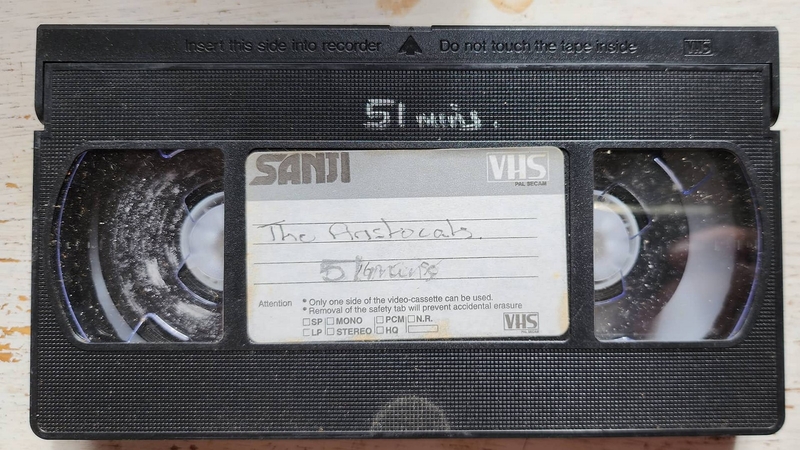
2. The Natural Law of Tape Demagnetization
The biggest problem with these VHS sets is magnetic signal loss. This is a gradual and natural process where the information you saved keeps disappearing inch by inch. The stored content starts vanishing over time; colors start banding, and voices dwindle.
It is roughly calculated that the rate of this damage is 1% per year when the tapes are stored in ideal conditions. This number may vary according to the conditions of storage.
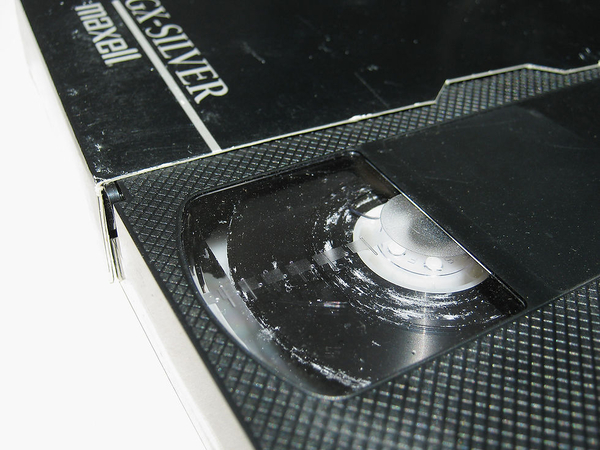
3. Environmental Damage Cases
The lifespan of Criterion VHS tapes is heavily dependent on the external conditions as well. When your tapes get exposed to high humidity, above 60%, it can cause the mold to grow, which deteriorates the surface of the tapes and leads to playback problems.
Exposure to heat can stick the tapes together, making them crispy and unplayable. Additionally, the dust accumulated inside a VCR can scratch the tape, degrading its quality. To ensure that the recordings remain safe from environmental damage, they should be kept in proper packages.
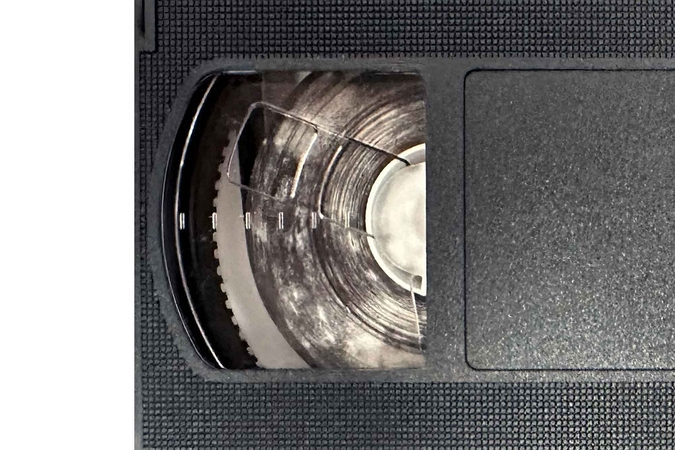
4. The Aging Crisis of Playback Equipment
This digital world stopped producing these analog tapes altogether in 2016 because the VCRs became very rare. Even the ideally stored tapes were useless, and there were fewer than 200 people who specialized in repairing them. People started moving to digital content, and the analogue equipment became outdated and extinct.
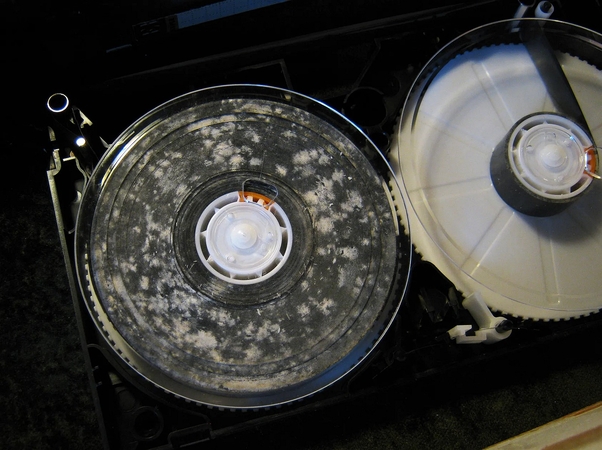
5. The Technical Threshold of Digital Conversion
The task of converting huge VHS collections to digital form is technical and relies on special equipment. As analogue signals from VHS tapes are unstable, the wrong transferring techniques can result in frame dropouts, flickering, and synchronization problems. VHS was initially intended for standard-definition (240p, 480p) quality, which is why improper digitization can result in late audio, color distortion, or grainy appearance.
Professional video capturing equipment and Time Base Correctors (TBCs) guarantee a smoother conversion procedure while maintaining the most significant amount of detail. The goal of restoration may be defeated if the digital copy is mishandled and turns out to be of lesser quality than the original tape.
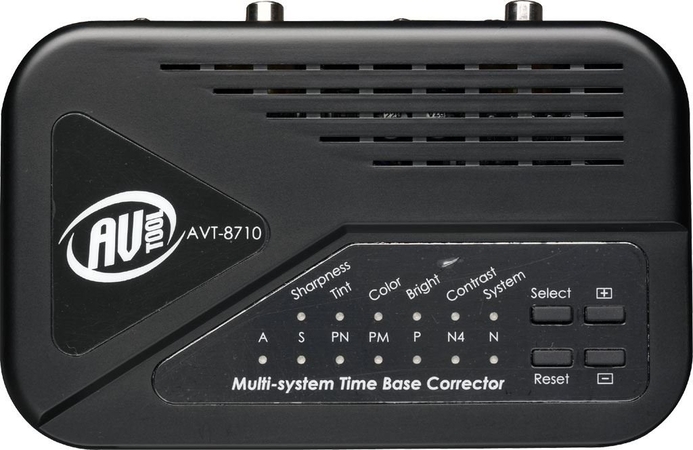
6. The High Cost Of Professional-Grade Acquisition Equipment
To restore VHS tapes properly, you need expensive VCRs with built-in Time Base Correction for stable playback. These VCRs have a high probability of reducing damage issues, but they cost around $500-$2000. Many people resort to second-hand markets, but prices continue to rise there as well because of higher demand each day.
7. The Complexity Of NTSC/PAL Conversion
The VHS sets used to be manufactured in regional formats, and the most common were NTSC (National Television Standards Committee) and PAL (Phase Alternate Line). NTSC was used in America and Japan, and on the other hand, PAL was used in Europe and a few parts of Asia. These formats are not compatible with each other’s VCRs, which means an NTSC tape cannot be played on a PAL VCR.
Part 2. Traditional VHS Repairing VS AI-Powered Solutions
In the past, VHS restoration depended on manual repair methods such as playback stabilization with Time Base Correctors (TBCs). Unfortunately, these techniques were quite expensive, required specialized knowledge, and a substantial time commitment.
On the other hand, modern tools can improve VHS tape by eliminating noise and upscaling content to higher resolutions like 4K due to AI-powered restoration. VHS collectors favor this method since it is more effective and affordable. A brief comparison of the two methods is given in the table below:
| Features | Traditional VHS Repair | AI-Powered Restoration |
|---|---|---|
| Specialized Software | Yes | No |
| Time Consumption | Yes | No |
| Technical Expertise | Yes | No |
| Removal of Noise & Flicker | No | Yes |
| Upscale to 4K Resolution | No | Yes |
| Restoration of Colors and Details | No | Yes |
| Correction of Jittery Playback | No | Yes |
| Best for Beginners | No | Yes |
Better than conventional techniques, advanced restoration technologies employ AI algorithms to eliminate distortions while maintaining original information.
Part 3. VHS Digital Restoration: Across Time and Space With HitPaw VikPea
If you want to restore cherished memories of your Hi5 VHS collection, utilize HitPaw VikPea (formerly HitPaw Video Enhancer). This platform restores VHS collection without requiring any specific hardware and provides the execution of multiple files with one click using the batch processing feature. Utilizing enhancement models lets you add vibrant colors to your black or darker videos for impressive restoration. Moreover, you can get high-quality resolution outcomes within your desired format without having any professional editing.
Key Features
- It lets users reduce the noise of the videos by using its AI denoise model.
- Utilize the repair model to make a video scratch or flicker-free with seamless restoration.
- Bring clarity to blurred or faded VHS footage using its advanced Detailed Recovery Model.
- The frame rate enhancement model reduces the choppiness of the footage.
- This tool lets users refine their huge VHS collection to generate high-quality results.
Step-by-Step Guide to Understanding the AI Video Enhancer Model
Learn how to restore VHS with digital restoration by following the step-by-step guide using the AI enhancer model:
Step 1. Install VikPea and Import VHS FootageAccess the tool by installing it and click on the “Video Enhancer” option from the left panel. Next, hit the “Import” button to add VHS media from your device.

Step 2. Choose Detail Recovery or Video Quality Repair Model
Once the video is uploaded, hit the “Detail Recovery Model” or “Video Quality Repair Model” to restore the quality of VHS media. Then, click on the “Preview 3S” button to execute the process.

Step 3. Export the Quality VHS Media
When satisfied with the generated results, hit the “Export” button in the top right corner of the interface to save enhanced VHS sets to your device.

Part 4. FAQs of VHS Collector
Q1. Is there a collectors' market for VHS?
A1. Yes, there is a wide range of collectors for VHS tapes because it lets people preserve content, especially if they are unopened.
Q2. Where is the largest VHS Collection?
A2. One of the largest collections of VHSs is the Marion Stokes archive, 70000 tapes recorded by Marion Stokes for TV news.
Q3. What is the maximum capacity of VHS?
A3. It depends upon the capacity of the VHS, such as s-VHS tapes, which are capable of 480 minutes of recording.
Q4. Can VHS last for 100 years?
A4. It depends on the factors such as the quality or storage condition of the VHS. If you want to restore footage digitally, you can utilize tools like HitPaw VikPea.
Conclusion
This guide explored the main reasons behind the damage to VHS tapes or VHS collectors. We have also suggested the top-notch HitPaw VikPea to restore your media using advanced AI models. Moreover, it lets users make their videos high quality by eliminating various types of noise using the denoise model.






 HitPaw Edimakor
HitPaw Edimakor HitPaw FotorPea
HitPaw FotorPea HitPaw Univd (Video Converter)
HitPaw Univd (Video Converter) 



Share this article:
Select the product rating:
Daniel Walker
Editor-in-Chief
My passion lies in bridging the gap between cutting-edge technology and everyday creativity. With years of hands-on experience, I create content that not only informs but inspires our audience to embrace digital tools confidently.
View all ArticlesLeave a Comment
Create your review for HitPaw articles